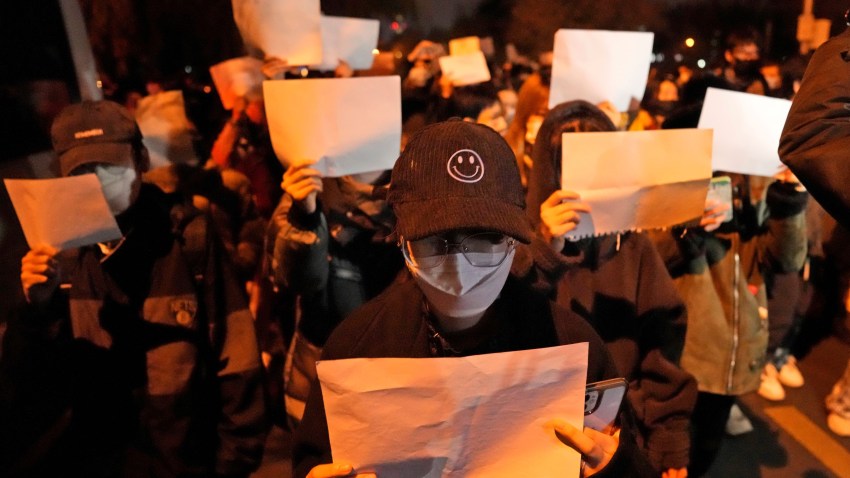Over the past few weeks, protests have broken out in cities across China against the country’s draconian “zero COVID” policies. The public expression of popular discontent is not unheard of in China. But it has been more severely repressed in recent years, even as the country’s online platforms are rigorously censored of any dissent.
The current protests are notable for featuring overt criticism of President Xi Jinping, the Chinese Communist Party and China’s political system. Xi is seen as personally responsible for the country’s pandemic response, which has emphasized strict citywide lockdowns and quarantines, often leaving citizens unable to access food, health care and other basic necessities.
Coming just weeks after the CCP’s National Congress reappointed Xi to a precedent-shattering third term as the party’s general secretary, the protests represent a major reversal in the triumphalist narrative Xi and the party had hoped to portray. While no one expects the protests to threaten the party’s hold on power, they have already caused many observers outside China, and almost certainly inside the country as well, to reevaluate their assumptions about the depth of support it enjoys among the Chinese population.

